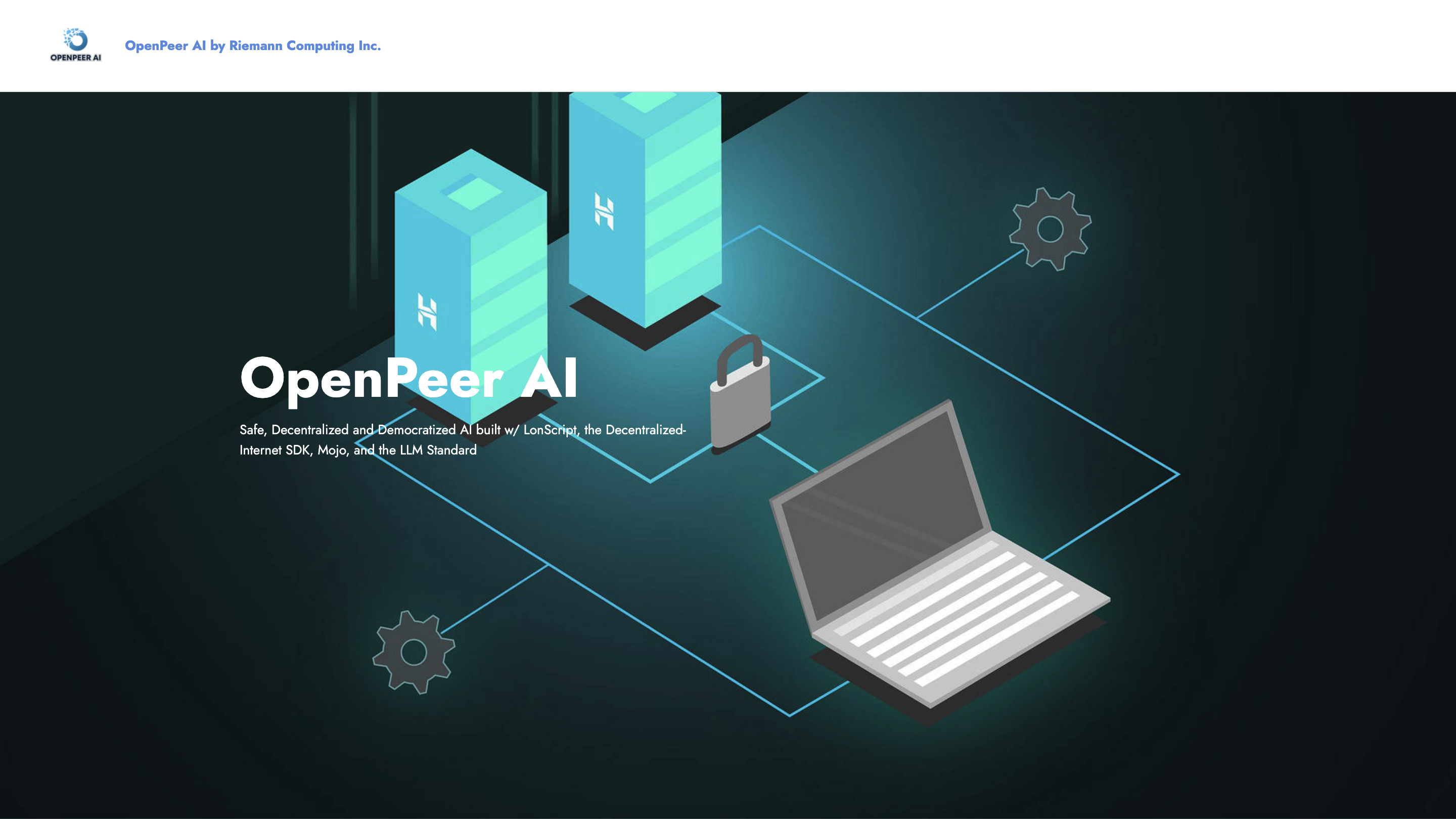OpenPeer AI
Open siteIntroduction
Decentralized AI platform for scalable and efficient solutions.
OpenPeer AI Product Information
OpenPeer AI by Riemann Computing Inc. is a decentralized, open-source AI platform designed to be safe, scalable, and practical for real-world AI workloads. Built on the decentralized-internet SDK and BOINC foundations, it integrates Mojo, LonScript, OpenPeer, and LLM standards to deliver a scalable framework for distributed AI development, experimentation, and deployment.
Overview
OpenPeer AI emphasizes decentralization, open-source transparency, and community diplomacy. It enables users to run AI models and workflows on their own hardware or in the cloud, with a focus on reducing unnecessary centralized computing bottlenecks and enabling reproducible AI pipelines across distributed environments.
How it Works
- Decentralized architecture: Leverages the decentralized-internet SDK and BOINC-based infrastructure to distribute computational tasks across a network of nodes.
- Modular stack: Uses Mojo, LonScript, and OpenPeer together with LLMS standards to create interoperable components for model inference, training, and orchestration.
- Fault-tolerant design: Built to handle failures gracefully, maintaining consistency and progress across distributed tensors and reinforcement learning workflows.
- Practical AI focus: Prioritizes diffusion models, generative art, automation, and scalable, reusable components beyond simple search-reindexing tasks.
Why OpenPeer AI
- Open Source: Inspect, modify, and run the code on your own hardware or in the cloud.
- Decentralized: Encourages distributed computation and collaboration across the community.
- Scalable: Architecture designed to minimize computation time and support horizontal scaling and RPAs (Robotic Process Automations).
- Safety and Governance: Emphasizes AI safety safeguards and responsible development within a distributed ecosystem.
Safety and Governance
- Community diplomacy and transparent governance models to resolve conflicts and align on best practices.
- Built-in safeguards and modular components to promote responsible AI usage in distributed environments.
Core Features
- Open-source: Access, inspect, and run OpenPeer AI code, packages, and modules on-premises or in the cloud
- Decentralized architecture: Distributed tensors and tasks across networked nodes for scalable AI workloads
- Interoperable stack: Mojo, LonScript, OpenPeer, and LLM standards for flexible AI pipelines
- Fault tolerance: Robust design to handle node failures and maintain progress
- Practical AI focus: Supports diffusion models, generative art, and automation workflows
- Horizontal scaling: Easily scale across devices and cloud resources
- RPAs integration: Robotic Process Automations for streamlined deployments
- Community-driven: Diplomacy and collaboration within the OpenPeer AI ecosystem
Getting Started
- Explore the project repositories on supported platforms (GitHub, HuggingFace, etc.).
- Join the community to receive updates on repo releases, announcements, and NFT drops.
- Deploy the components on your environment and start building distributed AI workflows.
